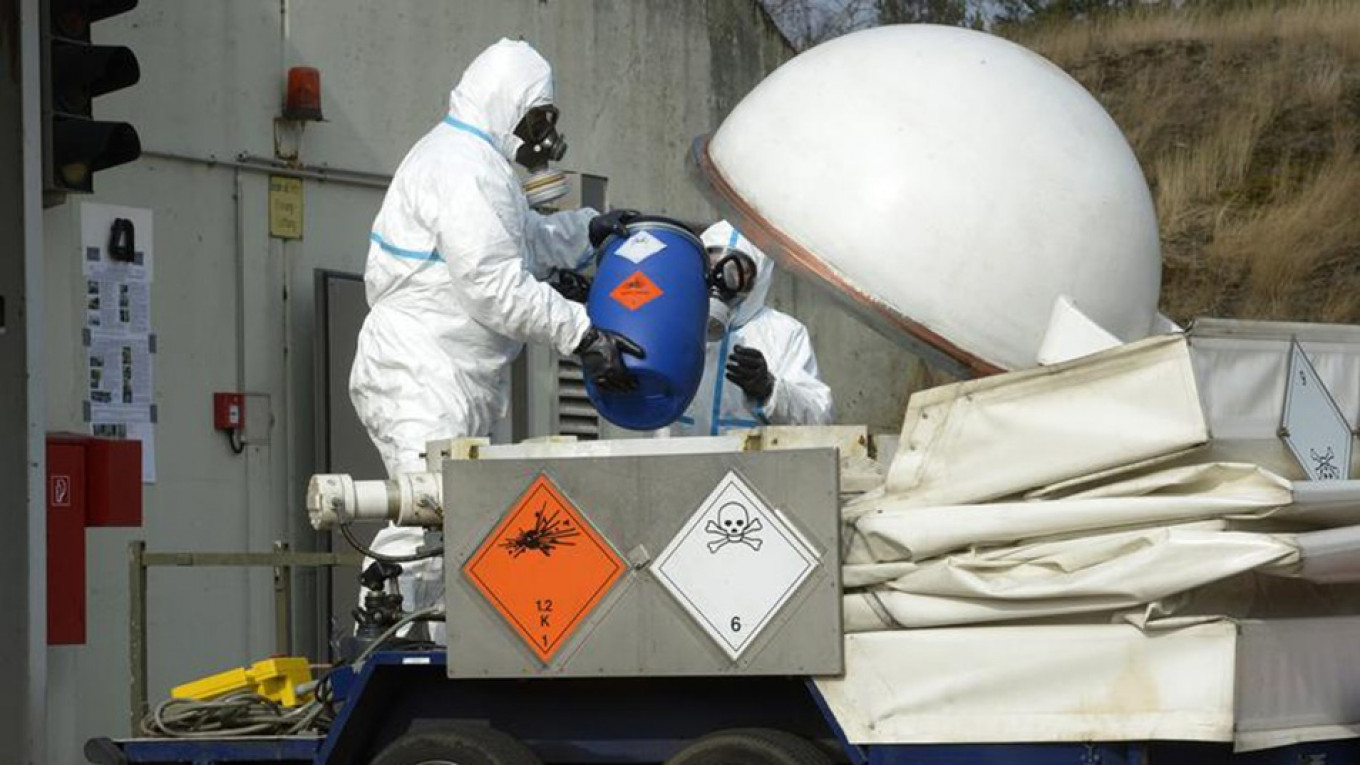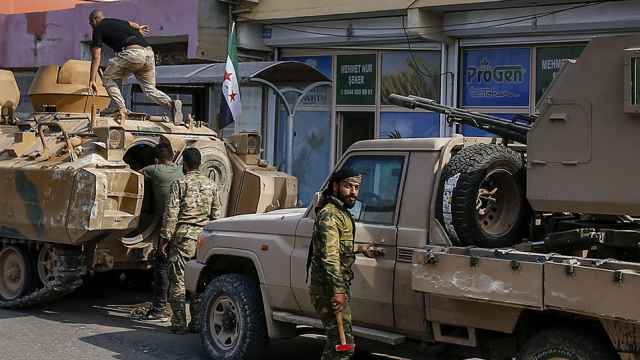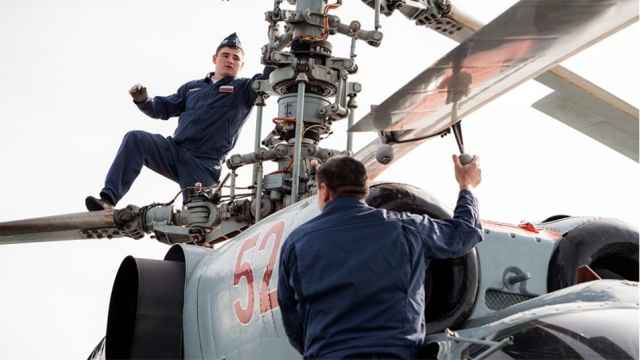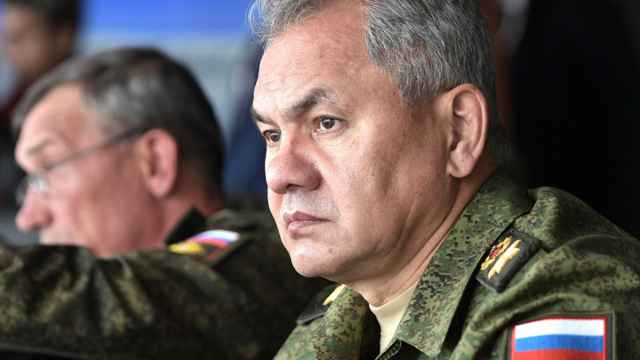The Pentagon cautioned Russia on Tuesday not to tamper with the site of an alleged gas attack in Syria's Aleppo and allow investigators to inspect the site.
The global chemical weapons agency, known as the Organization for the Prohibition of Chemical Weapons (OPCW), has said it will investigate the alleged gas attack in Aleppo on Saturday that reportedly sickened up to 100 people. The Syrian government and its ally, Russia, blamed the attack on insurgents.
The Syrian government, which accused rebels of firing chlorine, asked the OPCW to send a fact-finding mission to the city.
"We caution Russia against tampering with another suspected chemical weapons attack site and urge Russia to secure the safety of the OPCW inspectors so these allegations can be investigated in a fair and transparent manner," Pentagon spokesman Commander Sean Robertson said.
In April, the United States accused Russia of blocking international inspectors from reaching the site of a suspected poison gas attack in Syria's Douma and said Russians or Syrians may have tampered with evidence on the ground.
The OPCW will be able not only to determine whether a chemical weapons attack occurred but also to assign blame. That responsibility had fallen to a joint UN-OPCW mission until Russia blocked a United Nations Security Council resolution to extend its mandate a year ago.
Past investigations by the joint mission found that Syrian government forces had used chlorine and sarin several times in the civil war, while the Islamist militant group Islamic State was found to have used sulphur mustard gas once. Other rebel groups have not been found in formal reports to have used banned toxic munitions.
A health official in Aleppo said victims had suffered breathing difficulties, eye inflammation and other symptoms that suggested the use of chlorine gas.
Chlorine is a widely available industrial chemical, but its use as a weapon is banned internationally.
The Pentagon also called on the Syrian government not to use "false pretexts" to carry out strikes in Idlib's de-escalation zone.
"We continue to engage the Russian government and military at senior levels to make clear that an offensive in Idlib would represent a reckless escalation of the conflict," Robertson said.
Russia's Defense Ministry said on Sunday its warplanes bombed militants in the insurgent stronghold of Idlib who it accused of firing poison gas at Aleppo.
A Russian-Turkish deal in September for a demilitarized zone staved off an army offensive against the Idlib region.
A Message from The Moscow Times:
Dear readers,
We are facing unprecedented challenges. Russia's Prosecutor General's Office has designated The Moscow Times as an "undesirable" organization, criminalizing our work and putting our staff at risk of prosecution. This follows our earlier unjust labeling as a "foreign agent."
These actions are direct attempts to silence independent journalism in Russia. The authorities claim our work "discredits the decisions of the Russian leadership." We see things differently: we strive to provide accurate, unbiased reporting on Russia.
We, the journalists of The Moscow Times, refuse to be silenced. But to continue our work, we need your help.
Your support, no matter how small, makes a world of difference. If you can, please support us monthly starting from just $2. It's quick to set up, and every contribution makes a significant impact.
By supporting The Moscow Times, you're defending open, independent journalism in the face of repression. Thank you for standing with us.
Remind me later.







